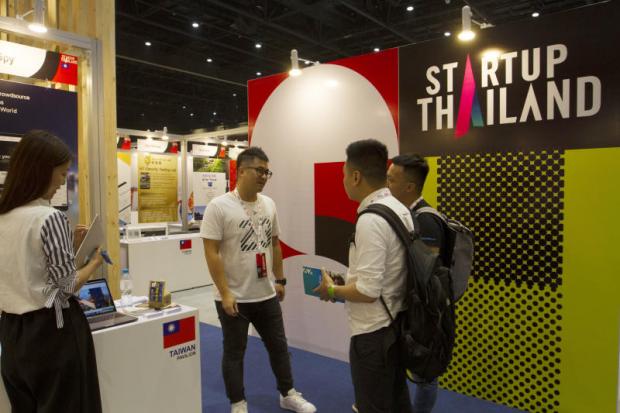
Thailand's startup industry is moving forward to deep technology, where more advanced technologies and innovations are applied, says media content provider Techsauce.
These innovative technologies include the Internet of Things (IoT), artificial intelligence (AI), robotics, quantum computing, nuclear or renewable energy technology, space technology and medical technology.
Techsauce's report found funds raised by Thailand's startups in the second quarter this year totalled US$15.4 million (504 million baht).
Last year funds raised by Thai startups tallied $271.4 million. There are 96 active venture capital firms, many of which contributed to 90 startups.
Over 2012-18, $414.9 million in funds was raised by venture capital firms.
Pun-Arj Chairatana, executive director of the National Innovation Agency (NIA), said to make Thailand a global startup destination, the agency has to inspire startups to become deep tech startups and focus more on doing research and making use of advanced technologies rather than focusing only on digital technology.
However, it takes time and huge investment as well as a highly skilled workforce to increase the number of deep tech startups.
He said local startups can become deep tech startups by using existing technologies. For example, they can use IoT, drones or AR to do farming.
Patai Padungtin, former president of Thailand Tech Startup Association and chief executive of Builk One Group, a local construction tech pioneer, said new local startups can no longer focus on a business model only and replicate other successful startups, but rather look to deep tech to differentiate themselves so others cannot compete with them.
Existing startups should make deep tech technology applications part of their businesses if they want to survive sustainably.
Existing startups need to coordinate with educational institutes that have skilful researchers who know about advanced technologies instead of putting huge investment into carrying out R&D themselves, said Mr Patai.
Builk One Group follows this strategy. The company gets support from Chulalongkorn University and Sirindhorn International Institute of Technology Thammasat University to conduct research on AI and data analysis to expand the company's business.
The idea is to use technology to rate suppliers within the supply chain. This will help Builk One become a fintech construction business.
Krating Poonpol, the manager of 500TukTuks, the venture capital arm of US-based 500 Startups, said in Thailand, deep tech can help strengthen food and agricultural sectors and confirm Thailand's position as the kitchen of the world.
Deep Technologies include data analysis to do precision agriculture, manufacturing, harvesting, farm-to-table traceability, urban farming and plant-based meats.
500TukTuks is seeking to expand investment of its second fund in deep tech startups as well for biotech, artificial intelligence, augmented reality, virtual reality, food and healthcare investments.
Varayuth Yenbamroong, founder of mu Space Corp, the first Thai satellite startup, said the Thai startup industry is still in infancy, but is growing rapidly. He said the country needs to modernise existing policies speedily to enhance competitiveness and facilitate investment.
In addition, Thailand is becoming highly urbanised, with half of the population moving to cities. Urbanisation is the major growth trend that will transform societies throughout Southeast Asia.
"We can deploy new technologies into a sustainable smart city through deep technologies such as AI, IoT and robots," he said.
For example, smart lighting systems to save energy, surveillance cameras to ensure road safety by using streaming function through wireless internet, smart car parking systems that alert drivers in parking areas, collect traffic data and make analyses to help drivers choose less congested routes.
However, enabling deep tech startups to commercialise their ideas consumes time and investment and proper support is necessary for success, Mr Varayuth said.